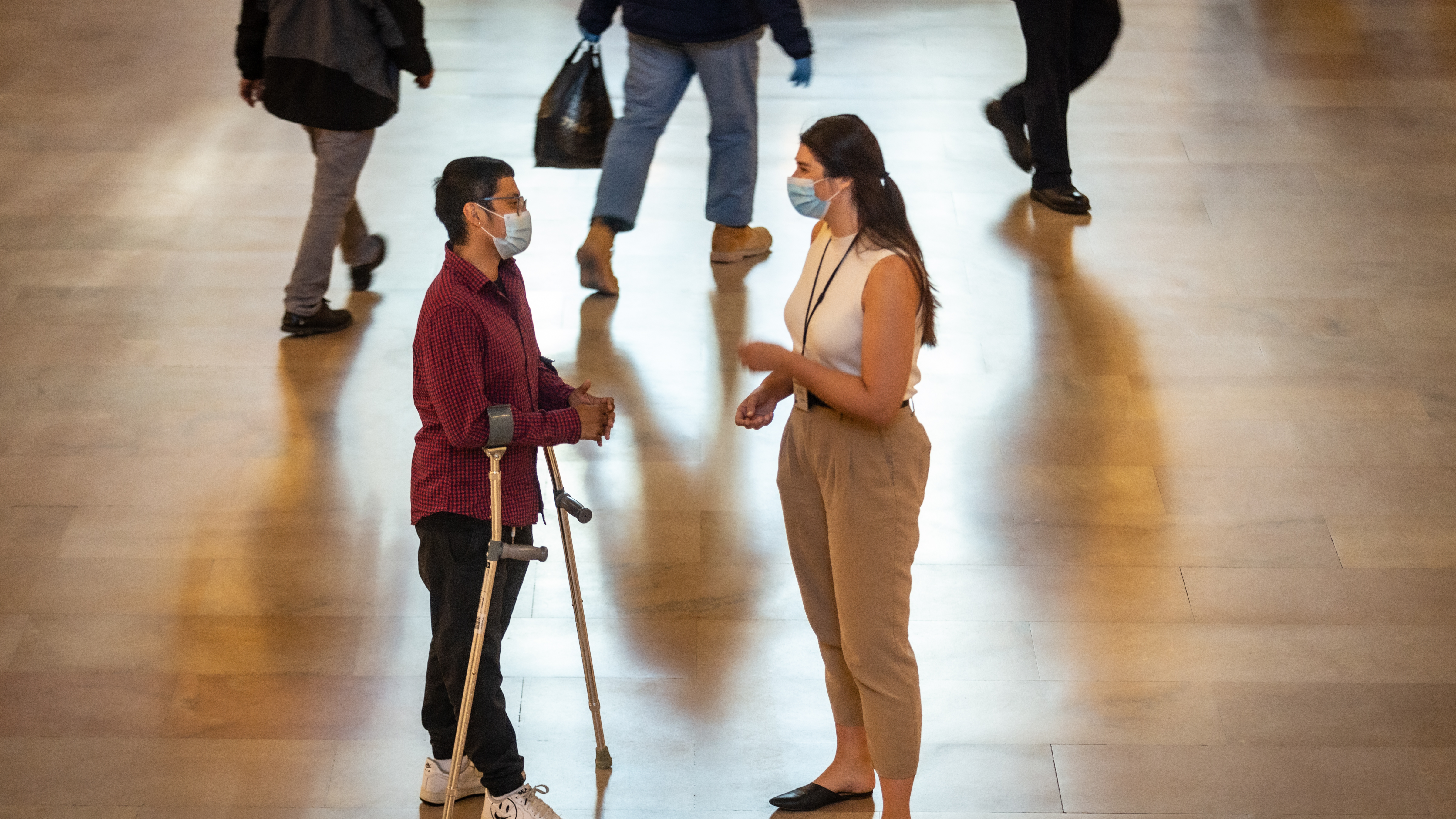Disability is a rich part of human diversity, something nearly all of us will experience at some point in our lives,and can shape how we experience the world. The passage of the Americans with Disabilities Act (ADA) in July of 1990 prohibited discrimination against people with disabilities. As our society continues to challenge ableism and become more inclusive, you too can help celebrate the history, honor the achievements, promote the visibility, and advance the rights and experiences of people with disabilities with a grant.
Supporting Children and Families
Fifteen percent of the world’s population have a disability, including 240 million children. Their families can face structural barriers to accessing information, social supports, and services that enable the whole family to thrive. The local organizations recommended here meet the diverse needs of children with disabilities by advocating for their rights, providing culturally competent and inclusive services, building stronger supports for families, and fostering inclusive communities.
Community Inclusion and Development Alliance (CIDA) was originally founded as a support group for Korean American parents of children with intellectual and developmental disabilities, and now serves as a disability resource center for Asian American families in Queens and throughout the city. It offers programs in English, Korean, and Chinese that provide advocacy, community programs, workforce development projects, and parent training and support to more than 700 families each year.
IncludeNYC connects young people with disabilities and their families with information, advocacy, and case management services to help them navigate city services and make informed decisions. Its helplines, events, and guides are free and offered in multiple languages; many of its clients are people of color and immigrants. It advocates for the full inclusion of every young person in school, in the workforce, and in the community.
Sinergia helps Spanish-speaking families identify and access appropriate, quality services for their children with disabilities. It offers residential, day, and employment services; family support; breaks for home-based caregivers; and parenting education.
The Westchester Institute for Human Development (WIHD) creates better futures for people with disabilities and vulnerable children. WIHD is a key regional resource providing medical, dental, clinical, and social services to individuals, families, and professionals throughout Westchester and the Lower Hudson Valley.
Advancing Inclusive Education
Historically, the general education system has often excluded children with disabilities and failed to provide teachers with appropriate professional development and tools. But access to the right resources for disabled students can improve their quality of education and socioemotional learning experiences. These groups work toward a more inclusive education system.
The Literacy Academy Collective, founded in 2019, breaks the cycle of illiteracy for students with dyslexia and other struggling readers, particularly those who face barriers due to race, income, and disability. LAC creates structured literacy programs and teaches foundational and higher-level literacy skills to help students achieve academic success. The Trust is supporting the agency with a grant to open the city’s first public school for students with language-based learning disabilities.
Long Island Advocacy Center helps children with disabilities access the education to which they are entitled through advocacy, referrals to legal and social services, family support, and trainings that help other organizations implement more equitable policies and practices.
Promise Project collaborates with the Columbia University Medical Center and NewYork–Presbyterian Hospital to provide free neuropsychological evaluations to children and help low-income families secure critical disability support and academic services. By helping parents navigate administrative hurdles to obtaining services, it creates a comprehensive path toward education and support for children with learning disabilities.
Building More Equitable Communities
While progress has been made, people with disabilities still confront systemic barriers to full participation in society. Studies show that employers are less likely to hire disabled people across gender, race, ethnicity, and age, and consequently, disabled people are more likely to work fewer hours, earn lower incomes, and accumulate less wealth than their non-disabled counterparts. In addition, advocacy and legal aid are still needed to push communities to be safer and more accessible for people with disabilities. The following organizations uphold better access to employment and more equitable policies for all.
AHRC New York City is a pioneer in the development of job opportunities for people with intellectual and developmental disabilities. Its employment program, one of the largest in the nation, partners with community businesses and nonprofits to provide on-the-job training to 2,000 people each year, address employer biases, and promote more inclusive and accessible workplaces.
Bridges from School to Work links young people with disabilities to jobs with the potential for career growth, and it provides coaching and support to help its participants maintain employment. Since 1989, Bridges has worked with high schools to help students find, keep, and succeed in jobs that can improve their career prospects as they enter adulthood.
Disability Rights Advocates provides people with disabilities with legal representation in all areas of daily life, including health care, employment, transportation, education, technology, and housing. It has successfully litigated for more accessible polling sites and to make all street intersections safe and accessible for visually impaired New Yorkers.
For 70 years, the Viscardi Center has worked with youth, adults, veterans, and businesses on Long Island to help people with disabilities access education and employment. Its programs provide assistive technology, digital accessibility, and employment services that empower people to become economically secure and fulfilled community members.
This list is not exhaustive. There are many incredible nonprofits helping to make our city a better place for all; we are highlighting a few that may not be on your radar, but please reach out to our philanthropic advising department at info@thenytrust.org if you would like recommendations tailored to your charitable goals.
